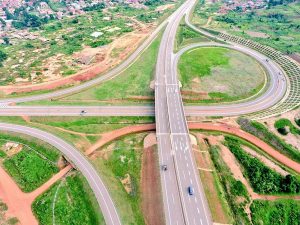Minister explains status of law on compulsory land acquisition
I am very delighted to deliver this presentation to you.
I would like to briefly highlight the back ground and historical aspects on the status of the Law on compulsory land acquisition vis a vis large scale based investments.
Compulsory land acquisition refers to the process by which the Government of Uganda acquires land from private persons in the interest of the public.
Compulsory acquisition of land is not new in Uganda. It dates back to the colonial times whereby the colonialists entered into agreements with traditional rulers whereby the colonialists under the crown took part of the land and distributed the rest to its collaborators, this was especially so in Buganda.
You will note Honourable members that the Amin government did not change this situation either and in 1975 promulgated a decree declaring all land in Uganda as public land and all tenure systems converted into leaseholds.
However, the situation changed with the coming into power of the NRM government under the stewardship of His Excellence Yoweri Kaguta Museveni, the President of Uganda who decided to return land to the citizens of Uganda and instead made government to beg for such land in case it was needed for public purposes.
Thus, the Constitution of the Republic of Uganda provides for fundamental rights of persons which are inherent and not granted by the state and among them include the right to own property.
In Uganda land belongs to the citizens and the right to own land is further fortressed by Article 26 of the Constitution.
However, it is important to note that the right to property is not absolute but is rather subject to limitations. Under the constitution the right to own property is not non-derogable and can be limited within the meaning of Article 43 (1) of the Constitution.
Even though land in Uganda belongs to the Citizens, it can be acquired by government in public interest hence the right to own land is not sacrosanct.
This was emphasized by the Supreme Court in the case of Amooti Godfrey Nyakaana v NEEMA &Ors where it was held that “an analysis of the provisions of the Constitution (articles 26, 237, 242, 245) points to the principle that although one has a right to own land through one of the systems of land tenure listed in the constitution, there may be situations which necessitate the government either to take over that land or to regulate its use for the common good of all the people of Uganda.”
This is what is referred to as compulsory acquisition of land.
Compulsory acquisition of land is therefore an exception and permitted interference with the right of ownership of property enshrined in Article 26 not forgetting that Article 43 (1) of the constitution provides for the limitation of enjoyment of rights.
When you examine our Legal framework, one will realise that the legal framework governing compulsory land acquisition in Uganda is part of land/ property law governed under the National Land Policy, Land Act-1998 as amended, human rights law-guaranteeing the right to property under Article 26 of the Constitution 1995 as amended and administrative law on the other side each with a potential of being invoked depending on the subject matter of contention at hand.
Compulsory land acquisition in Uganda is also guided by international instruments that Uganda is a party to.
The Universal Declaration of Human Rights (Article 17) provides that “everyone has the right to own property alone as well as in association with others” and that “no one shall be arbitrarily deprived of his property”.
The International Covenant on Economic, Social and Cultural Rights (ICESR) does not explicitly provide for property rights, but under General Comment No. 7 on Forced evictions, the UN Committee on Economic, Social and Cultural Rights enjoins member states to ensure that all persons enjoy a degree of security of tenure which guarantees legal protection against forced evictions, harassment and other threats.
Several regional conventions on human rights also protect rights to property, including:
Article 21 of the Convention provides for the right to property and states that everyone has the right to the use and enjoyment of his property.
The law may subordinate such use and enjoyment to the interest of society. 2. No one shall be deprived of his property except upon payment of just compensation, for reasons of public utility or social interest, and in the cases and according to the forms established by law.”
The European Convention on Human Rights and Fundamental Freedoms, 1950, (Article 8, First Protocol): “1. everyone has the right to respect for his private and family life, his home and his correspondence. 2. There shall be no interference by a public authority with the exercise of this right except such as is in accordance with the law and is necessary in a democratic society in the interests of national security, public safety or the economic well-being of the country, for the prevention of disorder or crime, for the protection of health or morals, or for the protection of the rights and freedoms of others.”
Article 14. The right to property shall be guaranteed. It may only be encroached upon in the interest of public need or in the general interest of the community and in accordance with the provisions of appropriate laws. Article 21. (1) All peoples shall freely dispose of their wealth and natural resources.
This right shall be exercised in the exclusive interest of the people. In no case shall a people be deprived of it. (2) In case of spoliation, the dispossessed people shall have the right to the lawful recovery of its property as well as to an adequate compensation.
Article 237 of the Constitution provides that land in Uganda belongs to the citizens and the right to own land is further fortressed by Article 26 of the Constitution.
Article 237(2)(a) provides that notwithstanding clause 1, the government or a local government may subject to Article 26, acquire land in the public interest; and the conditions governing such acquisition shall be as prescribed by parliament
The right to compulsorily acquire privately owned land or property is contained under Article 26(2) and 237(2)(a) of the Constitution. The right granted to government or a local authority to acquire privately owned property is subject to a number of limitations including;
- The taking of possession or acquisition is necessary for Public use, in the interest of defense, public safety, and public order. public morality and public health;
- There must be a law empowering the taking or acquisition of property;
- There is prompt payment of fair and adequate compensation. prior to the taking of Possession or acquisition of the property; and
- The owner or person with interest in the property has a right of access to a court of law
Section 42 of the Land Act provides that the Government or a local government may acquire land for public interest in accordance with articles 26 and 237(2) of the Constitution.
 Entebbe express highway
Entebbe express highway
Apart from the Constitution, the law governing compulsory acquisition in Uganda is the Land Acquisitions Act Cap 226. The Act contains the procedure through which the Minister may acquire privately owned property for public use.
It should be noted that the need for compensation is also provided for in other laws. For example Section 82(1) of the Mining Act 2003. Stipulates the need to compensate the land owner or lawful occupier of land under which are minerals, “reasonable compensation for any disturbance of the rights… and any damage done to the surface of the land…”
- 84 of the Water Act gives the Minister the power to acquire an interest in land and any structures on the land for purposes of the Act through lawful compulsory acquisition of land.
The Land Acquisition Act Cap 226 and the Constitution of Uganda would offer guidance in processes intended to effect the above provisions.
The Uganda National Land Policy of 2013 recognizes and cautions that the central government has not in the past exercised this power (of compulsory acquisition of land) responsibly and in the public interest.
It re-emphasizes that the State as a trustee for the Citizens of Uganda shall exercise the power of compulsory acquisition responsibly and in public interest. Further progressively, the policy calls for amendment of the Land Act-1998 and Land Acquisition-1965 to ensure responsible compulsory acquisition of land by the government.
The amendments proposed are two;
(I) prescribe a set of regulations and guidelines outlining the roles and responsibilities of the central government, local governments and different state organs and agencies in the exercise of this power;
(ii) Prescribe guidelines and procedures for payment of prompt, adequate and fair compensation irrespective of tenure category for local governments to exercise this power.
The Land Acquisition Act Cap 226 provides for the procedure to follow before compulsory acquisition of land.
- 2 of the Act provides that any person authorised by the minister may enter the land in order to examine and ascertain the suitability of the land for a public purpose. He can survey the land, dig into the subsoil and remove samples and do any other thing necessary for ascertaining its suitability. The government has a duty to pay compensation to any person who suffers damages as a result of entering and examining the land.
- When the minister is satisfied that the land is needed for public purpose, he or she may by statutory instrument declare that the land is required by the government for a public purpose as per Section 3.
- On publication of a declaration under Section 3, the assessment officer shall cause the land to be marked out and measure a plan of the land to be made if a plan of the land has not already been made as per S.4
- As soon as may be after the publication of the declaration in respect of any land, the assessment officer causes a notice to be published in the gazette and exhibited at the convenient place or near the land. It should state that government intends to take possession of the land. The notice of not less than 15 days is given inviting all people having interest in the land by the assessment officer on a day, time and place specified in order to determine the nature of their claims, the amount of compensation to be paid and any objections they may have to the plan for the land use as per Section 5 (1) (2) and (3) of the Land Acquisition Act.
- The Assessment officer on the day specified hears the claims and makes an inquiry into the claims and objections made in respect of the land.
- An award is made by him or her specifying the true area of the land and the compensation among all persons which should be paid to each person having an interest in the land (Section 6(1) of the Land Acquisition Act).
- Important to note is that Compensation is paid basing on the current market price of the land in the area prepared annually by the District Land Board. See Section 59(1)(e) and (f) of the Land Acquisition Act.
- Where an assessment officer makes an award under section 6, he can cause a copy of the award to be served on the minister and persons who have an interest in the land but were not personally there when the award was made.
- Any person aggrieved by the award of the Assessment officer may appeal to the District Land Tribunal or the High court if the Value of the land exceeds 50,000,000/=. Section 76(1)(b) and (c) supra
- The Uganda Land Commission then pays compensation for the value of the land if no appeal is made to the Courts of law. Section 6(4)(b)
- It is only after all people having interest in the land have been fully and adequately compensated that Government then takes possession of the land as provided for in Article 26(2)(b)(i) of the Constitution. The land is then managed by the Uganda Land Commission as per Section 7(1) of the Land Acquisition Act.
- Under Section 7, the minister may however take possession at any time after the publication of the declaration if the minister certifies that is in the interest of the public for him to do so. The estate and interest of every person having an interest in the land immediately before the land so vested is deemed converted into a claim for compensation under the Act. This means that it is only that the owner has been compensated that his rights are extinguished.
- Soon after taking possession, the assessment officer forwards to the registrar of titles a copy of the declaration relating to the land, endorsed with a certificate signed by the assessment officer who states that the assessment officer has taken over possession of the land and specifies the date on which he did so.
- On receipt of the endorsed declaration, the registrar of titles may take such steps to give effect in the register book to the operation of the possession specified in the declaration.
As earlier stated the right to own land in Uganda is not sacrosanct and can be limited within the permissible parameters as provided for under Article 43.
In that context any limitation imposed on the right of ownership can only be legally effective if it is in tandem with the pre-condition set out in Article 26(2).
It follows therefore that for the right of ownership of property to be interfered with such interference of any form must be in accordance with article 26(2) of the constitution.
Lord Dunedin defined compensation in the case of Great Western Rly Co. -v- Helps21 in the following words;
“Compensation which is directed to be paid by the employer to a workman who is injured by accident arising out of and in the course of his employment under S.1 of the Workmen’s Compensation Act [1906] (repealed) has its natural meaning – that is to say something that is to be paid which makes up for the loss that the man has sustained”.
Article 26(2) of the 1995 Constitution makes a requirement that the enabling law must provide for prompt payment of fair and adequate compensation prior to the taking of possession or acquisition of the property by the Government. The Land Acquisition Act does not provide for payment of ‘fair and adequate’ compensation as laid down in the Constitution. The Act only makes reference to compensation and does not clearly state how that compensation should be assessed. The dilemma created by this provision was decried by the Chief Government Valuer way back in 1970.[5] Although the Land Act of 1998 attempted to remove the lacuna by providing under Section 41(6) that “Compensation must be paid to the land owner at a fair market valuation assessed on a willing seller willing buyer basis.”
The Land Acquisition Act provides for the appointment of an “assessment officer” to carry out the valuation assessment. S.6(1) provides that the assessing officer shall make an award of compensation in which his or her opinion should be allowed.
The Land Act Cap 227 under Section 59(1)(e) and (f) provides for the functions of the District Land Board which among others include; (e)compile and maintain a list of rates of compensation payable in respect of crops, buildings of a nonpermanent nature and any other thing that may be prescribed;(f)review every year the list of rates of compensation referred to in paragraph (e) of this subsection;
- 5995) further mandates the Board, in compiling a list of rates of compensation referred to in subsection (1) (e) and (f), to consult the technical officers in the district.
In effect, the Land Acquistion Act Cap 226 only provides for the procedure for the acquisition of land thus relies on the Land Act and the general valuation practices for land and developments to determine compensation awards.
Guidelines for Compensation Assessment under Land Acquisition (GCALA)-2017
As the law does not provide for assessment of adequate compensation, in line with the recommendations of the National Land Policy 2013, in 2017 the Ministry of land came up Guidelines for compensation assessment.
These guidelines have been in existence since June, 2017 and are meant to enhance the harmonization and improvement of the ‘overall practice of valuation assessment to achieve fair and adequate compensation to protect affected persons.’
The Guidelines list 10 principles, informed by global standards and best practices upon which the Chief Government Valuer can base on in undertaking the valuation that eventually leads to determination of the compensation due to an affected person.
Our Courts have also emphasized the need for a fair and adequate compensation for persons whose land is compulsorily acquired.
In Buran Chandmary vs The Collector under the Indian Land Acquisition Act (1894) it was held that the market value of land is the basis on which compensation must be assessed and the market value of land as the basis on which compensation must be based is the price at which a willing vendor might be expected to obtain from a willing purchaser. A willing purchaser is one who although may be a speculator is not a wild or unreasonable speculator.
Sheema Cooperative Ranching Society & 31 Ors v Attorney General Court held that the compensation award offered by Government pursuant to the Valuation Report of August 2005 was outdated and insufficient and inadequate since it was not based on the open market value and disturbance allowances were never considered.
In the case of Oneg Obel & Anor vs. AG & Anor it was held that one of the conditions of acquiring private property by government is to pay prompt fair and adequate compensation. Court granted exemplary and general damages by declaring that the conduct of the agents of the government was arbitrary, oppressive and unconstitutional.
In that context any compulsory acquisition of land will be rendered unconstitutional and illegal if provision is not made for compensation. In Venansio Bamweyaka v Kampala District Land Board, Okello JA held that where the application for and the alienation of the land by the controlling authority has been done without compensation of those in occupation thereof such grant would not be allowed to stand.
In the case of Pyarali Abdu Ismail v Adrian Sibo court emphasized that owners of land acquired should not be prejudiced. They should be given a fair and adequate compensation and thus directed the trial judge to interpret s.11 (4)(b) of the Expropriated Properties Act No.9/1982 which prescribed unfair and inadequate compensation for compulsorily acquired property with a modified construction.
The impugned section was adapted and qualified so as to conform to article 26(2) (b)(i) of the Constitution.
Therefore, the status of the law is that compensation must not only be fair but must be adequate. However, the ministry is still facing a challenge from land owners who reject the valuation by the Chief Government Value which has resulted in halting essential projects and litigation.
Section 7 of the Land Acquisition Act Cap 226 provides for the Acquisition of land pursuant to the provisions of that Act.
However, the section allows the assessment officer to take possession of land without prior compensation if the Minister certifies that it is in the public interest for him or her to do so.
It should be noted that article 237 allows for compulsory compensation subject to article 26 of the Constitution.
One of the requirements for land acquisition in article 26 is prior compensation before acquisition. However, the Land Acquisition Act does not provide for mandatory prior compensation before acquisition.
Important to note is that the Land Acquisition Act is one of the enactments that came in force before the passing of the 1995 Constitution. Art 274 of the Constitution provides that existing law before coming into force of the constitution shall be read with necessary modifications and qualifications to bring it in line with the provisions of the constitution. This was emphasized in Osotraco v Attorney General.
Article 2(2) provides that the constitution is the supreme law of the land and no statutory provision in any enactment inconsistent therewith can supersede the provisions of the Constitution. It follows therefore that for any compulsory acquisition of land to be valid, such acquisition must be within the confines of Article 26(2) of the Constitution.
The legality of section 7 of the Land Acquisition Act was challenged in the case of Advocates for Natural Resources, Irumba Asumani and Others v Attorney General, where the Constitutional Court held that S.7 of the Land Acquisition Act is inconsistent with and contravenes Article 26. The provision was nullified to the extent of its inconsistency that is as it does not provide for prior payment of compensation before government compulsorily acquires or takes possession of any person’s property. It was further emphasized that judicial bodies should construe old laws that predate the 1995 Constitution in conformity with Article 274.
However, of great importance in regard to this matter is the Supreme Court’s judgment on appeal in UNRA v Irumba Asumani where court confirmed the decision of the Constitutional Court and held that S.7(1) of the Land Acquisition Act was inconsistent with article 26 of the Constitution as it allowed government to compulsorily acquire land without prior compensation.
The Court went on to hold that whereas Article 26 is not among the non derogable rights stated under article 44, this does not give powers to government to compulsorily acquire people’s land without prior payment and that such planned government projects do not fall under the exceptions of disasters and emergences.
The ruling of the Supreme Court has made it clear the right to own property is absolute save in instances of disasters, calamities and emergences.
Those are the only limits court qualified to be the exceptions where someone can be deprived of their property without prior compensation.
However, in case of compulsory land acquisition that does not fall within the stated exemptions, compensation must be prior.
The Constitution provides for the reasons for compulsory land acquisition.
The law on compensation in the Ugandan context can lead to multiple interpretations as a result of, for example, absence of clear stipulations on key terms such as “public interest”, “public order” and “public safety” as seen in article 26 (2) (a).
For the foregoing, scholars such as Oloka-Onyango have made recommendations for constitutional amendment of article 26 to clarify these concepts among others.
This would go a long way in capturing trends at definitions as seen in case law, such as Bhatt and Anor vs Habib Rajan. In this case, it was emphasized that ‘public interest’ would have an objective of fulfilling a community-based interest as opposed to that in the interest of an individual.
Challenges to compensation
Whereas land belongs to Ugandans, Government also needs land for social economic development. Government needs land to give to investors who will carry out job creation projects.
The discovery of oil in the Albertine region has necessitated the need for land for exploration and production of oil, not forgetting the need for land through which the oil pipeline is to pass via Tanzania.
The development of large infrastructure projects may often entail land intake, the involuntary resettlement of affected persons and the compulsory acquisition of land.
As government we agree, that compensation is therefore inevitable for project affected persons. We are aware that majority of Ugandans depend on land for their survival as it is always and in some cases the only, source of livelihood.
Compensation is not merely a transactional relationship between the project developer and the affected persons; it should encompass a developmental component in order to avoid impoverishment.
However, the acquisition of land for large scale investments has been a challenge to the government. The requirement of the law for prior fair and adequate compensation as explained above has resulted in high costs for implementation of government’s infrastructure and investment projects.
As a result, there has been a project delay in cases where an affected person rejects compensation and resorts to court.
The delayed government infrastructure and investment projects due to disputes arising from compulsory land acquisition processes causes government significant financial loss as a result of penalties from contractors for redundant machinery as well as loss in terms of litigation of the resultant court disputes thus causing financial loss to both government and contractor.
Graft, gross corruption, greed, incompetence and collusion have tainted land acquisitions relating to public infrastructure. This is evidenced by the exaggerated compensation and collusion between land owners and project managers.
There have been various instances where colossal sums of money were dubiously paid yet genuine claimants are left unpaid.
For example, the case in Buwama, Masaka road, where power transmission pylons were constructed over a swamp. Initial inquiries showed that the land was public land. After the pylons were constructed, a mysterious owner showed up claiming billions. He even produced a brand new land title and was compensated in unclear circumstances.
Another example is the case in Mbarara where power transmission pylons were being constructed via a rural dairy farm.
The owner of the farm, a well-connected man stopped the construction and presented an outrageous claim that the high voltage power lines would affect his cows and reduce milk production.
The electricity Regulatory Authority purchased the land at 900 million shillings for land which did not exceed five acres and yet the cows are still grazing on this same land.
The above challenges cannot be easily overcome without amendment of the law as earlier explained. There must be a balance between compensation and projects for public purposes.
Government should be empowered to take possession of property declared for compulsorily acquisition, upon deposit with court, the compensation awarded by government valuer for property in question in the event a person with rights or interest in the land demands a higher compensation.
The affected person should be at liberty to access the money deposited in court in the course of litigating the dispute. The law should prescribe the time within which this dispute should be resolved.
Conclusion
The law on compulsory land acquisition empowers government to acquire land in public interest. However, such acquisition must be preceded by adequate compensation.
The implementation of this law has led to delay in projects and increased the cost of implementation of various large scale land investments due to exaggerated claims and disagreement over the value of the land.
In order to balance the interest of the public and the individuals claiming compensation, there is need to amend the law to facilitate expeditious compulsory acquisition of land by Government or Local Government to avoid delaying Government or Local Government infrastructure and investment projects, while at the same time, allowing for persons dissatisfied with the compensation amount awarded to resolve the disputes in court in the time to be determined by the laws put in place.
The author is minister of State for Lands













